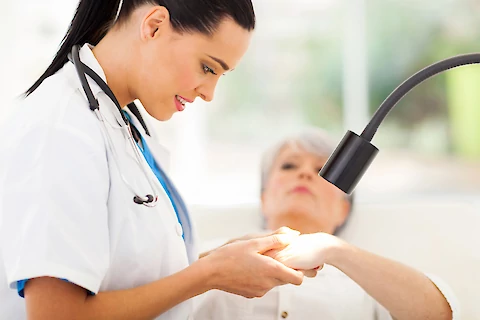
As our loved ones age, we must know their potential health risks. One such risk is melanoma, a type of skin cancer that can be particularly dangerous for seniors. While the topic of cancer can be daunting, understanding melanoma risk factors and caring for your senior family members is essential to maintaining their well-being.
Why Seniors Face Increased Risk
As we delve into the various risk factors associated with melanoma, it's important to remember that seniors are at an increased risk compared to younger individuals. Seniors have a higher risk primarily due to cumulative sun exposure over their lifetime and how their skin tends to be thinner and more susceptible to damage. With this in mind, seniors and their families must ensure dermatologists or other medical professionals perform regular skin checks.
Genetics
One key risk factor for melanoma is genetics. If your family has a history of melanoma, it's necessary to be aware of this and take necessary precautions, as the risk may pass on to subsequent generations. In some cases, specific genetic mutations have been linked to an increased risk of melanoma. Families with a strong history of the disease may benefit from genetic counseling and testing to better understand and manage their risk factors.
Geographic Location
Location is another factor that plays a significant role in melanoma risk. Sun exposure can vary depending on where you live, with those in sunnier climates or at higher altitudes being more prone to the harmful effects of UV radiation. Regardless of your geographic location, seniors and their families must practice diligent sun protection. Seniors can protect themselves by wearing sunscreen, protective clothing, and seeking shade outdoors during peak sunlight hours.
Lifestyle Choices
Lifestyle choices can also contribute to increased melanoma risk. Seniors should avoid sunbathing and using tanning beds as they significantly increase the chances of developing skin cancer. Additionally, outdoor occupations or hobbies can lead to excessive sun exposure, underscoring the importance of proper sun protection. Seniors may also have a weakened immune system due to age or other factors, which can increase their melanoma risk.
Personal Factors
Lastly, skin type and personal history can play a role in determining melanoma risk. People with fair skin, freckles, and light hair are at a higher risk. People with a history of sunburns or previous skin cancer diagnoses are also at risk. Knowing your own risk factors can help inform your sun protection and skin care habits.
Protecting Against Melanoma
So, what can seniors and their families do to mitigate melanoma risks? Sun protection is the first line of defense, with regular use of sunscreen, protective clothing, and shade as essential components of a safe and healthy lifestyle. Additionally, regular skin checks, both self-examinations and professional dermatologist appointments, are crucial for the early detection and treatment of potential issues.
Maintaining a healthy lifestyle can also help boost the immune system, reducing the risk of melanoma. A healthy lifestyle includes a balanced diet, regular exercise, and avoiding harmful habits such as tanning bed use or excessive sun exposure. For families with a strong history of melanoma, genetic counseling and testing may be beneficial in managing their risk factors.
After a Melanoma Diagnosis
If a senior family member gets diagnosed with melanoma, it's vital to provide emotional support during your loved one’s recovery. Understand that a cancer diagnosis can be incredibly difficult for seniors and their families, and offering encouragement and assistance throughout the recovery process is essential. Ensuring that your loved one receives appropriate medical follow-up and care is also crucial, as is coordinating with healthcare providers and caregivers. Finally, helping seniors make necessary lifestyle adjustments to reduce future melanoma risk can highly benefit their overall health and well-being.
Understanding melanoma risk factors and taking appropriate steps to mitigate risks is essential for seniors and their families. By practicing diligent sun protection, seeking regular skin checks, and maintaining a healthy lifestyle, you can help your senior loved ones stay safe and healthy.
Support at Home For Senior Loved Ones
For families in Massapequa, Hicksville, Great Neck, Hempstead, Valley Stream, Nassau County, and Elmont, Senior Helpers Central Long Island is here to provide support and care for seniors in their homes. Our caregivers can also help with sun exposure protection or lifestyle changes. Contact us today to learn more about our services and how we can help your family.